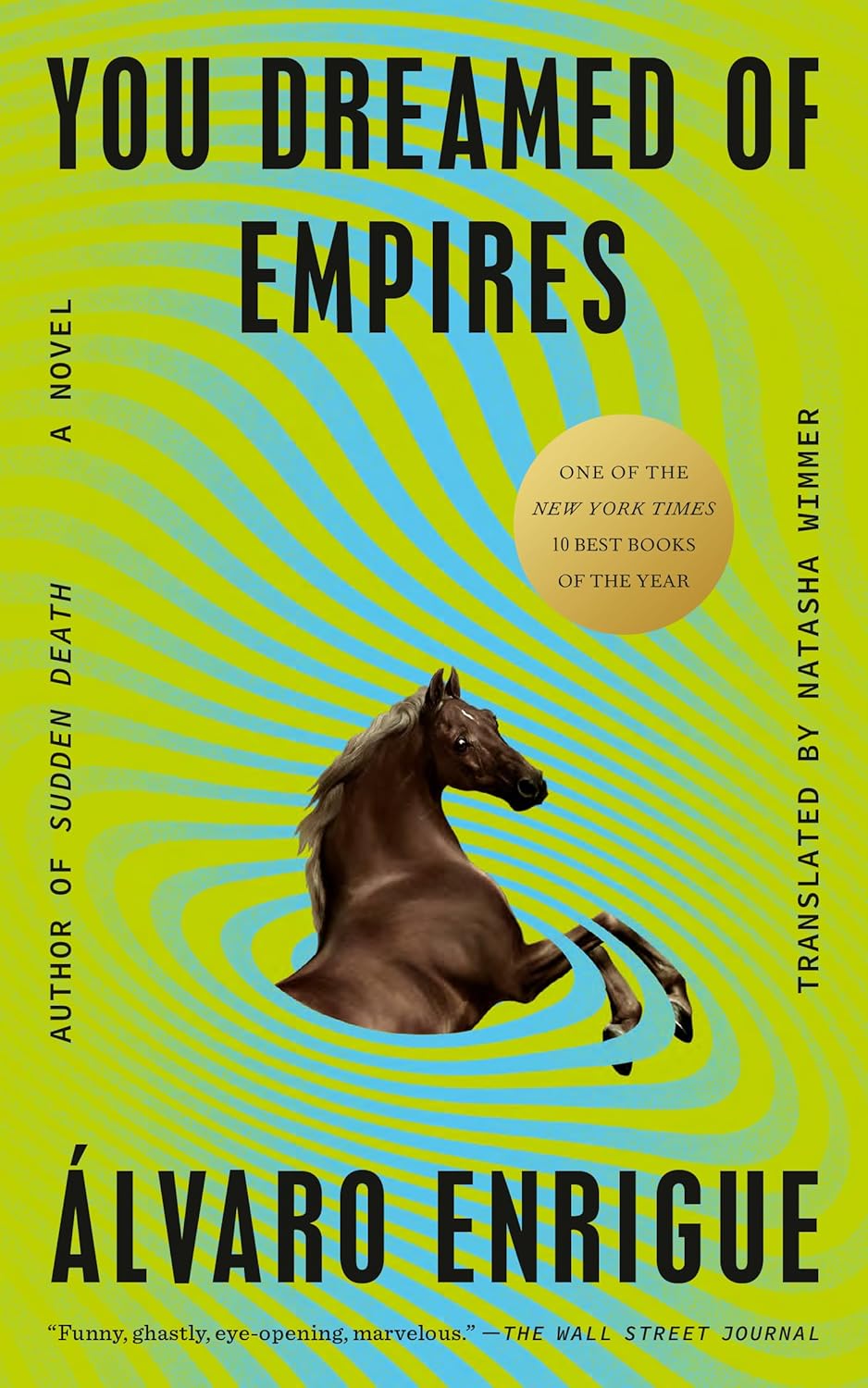
You Dreamed of Empires
I. Before the Nap
by Álvaro EnrigueThe chapter opens with a charged diplomatic lunch between Cortés’s conquistadors and Aztec nobility in the palace of Axayacatl, where cultural tensions surface immediately. Captain Jazmín Caldera’s visceral disgust at sharing a meal with blood-smeared priests underscores the Spaniards’ alienation in this sophisticated yet alien world. Cortés, ever the strategist, tests boundaries by boasting of his Tlaxcalan allies—a gambit that backfires when Princess Atotoxtli extracts the truth from Caldera about their encampment. The scene crackles with unspoken threats, as the Spaniards grasp they’re walking a knife’s edge between honored guests and sacrificial offerings.
Within Moctezuma’s palace, political fault lines emerge as Atotoxtli confronts her brother about housing the foreigners in her chambers. Their exchange reveals an empire in quiet crisis: the emperor withdrawn and erratic, his sister bristling at his decisions, and key figures like Cuitlahuac conspicuously absent. Meanwhile, the conquistadors wander Axayacatl’s labyrinthine halls like men in a dream—Badillo tending their prized horses in an orchard, Caldera leading armed men through identical corridors that mirror their geopolitical disorientation. The palace becomes a microcosm of Tenochtitlan itself: breathtaking yet unknowable, its hospitality laced with menace.
Central to these collisions is Malinalli, the Nahua translator whose baptism as Doña Marina symbolizes the fluid loyalties of the conquest. Floating in a flower-strewn pool, she weighs her precarious value to Cortés against the ghosts of her royal past. Her antique Nahuatl unsettles the Aztec elite, just as her presence unnerves the Spaniards who rely on her. Nearby, the cihuacoatl Tilipotonqui moves through shadowed corridors, parsing Moctezuma’s obsession with the “cahuayos” (horses) while sensing disaster in the missing Tlaxcalan lords. Every interaction hums with mutual incomprehension—the Spaniards marveling at a Venice-like city they cannot control, the Aztecs observing these gold-obsessed interlopers with wary fascination.
As dusk falls, Moctezuma’s melancholic murmur—“days of blood and shit”—hangs over the chapter like a prophecy. The Spaniards’ naive confidence (Alvarado’s boots sullying pristine cushions, their lost soldiers shouting through palace walls) contrasts with Aztec patience, both sides circling toward inevitable violence. Even the siesta ritual takes on ominous weight: this is the last pause before history fractures. When the emperor requests mushrooms to “summon sleep,” the reader feels the coming storm—one that will sweep away empires, identities, and the very meaning of conquest.
FAQs
- Why is Moctezuma so obsessed with the Spanish horses?
- The horses symbolize both fascination and power—Moctezuma views them as mystical creatures, while Cortés uses them as psychological weapons. The Aztecs had never seen horses before, making them objects of awe and terror.
- What is the significance of Malinalli (Doña Marina) keeping her Castilian understanding a secret?
- Her hidden fluency foreshadows shifting loyalties and the fragility of translation as a tool of control. Cortés’s order to conceal it ("Don’t tell Aguilar") hints at his growing reliance on her—and fear of her agency.
- Why does Atotoxtli confront Moctezuma about housing the Spaniards in her chambers?
- The dispute reflects deeper tensions: her defiance underscores the empire’s internal fractures, while Moctezuma’s indifference reveals his detachment from governance. The "Old Houses" symbolize contested power and legacy.
- What does Aguilar’s tattooed body represent?
- His tattoos (e.g., the butterfly that "turns into an eagle") embody cultural hybridity. A former slave turned translator, he bridges Maya, Spanish, and Nahua worlds—yet remains an outsider to all.
- Why does the palace feel like a labyrinth to the Spaniards?
- The disorienting architecture mirrors their political confusion. Their inability to navigate it—or even find their horses—metaphorizes their precarious grasp on the empire’s rules and dangers.
Quotes
- On Cultural Clash:
- "If they’re going to end up sacrificing us, let it be in clean clothes."
- — Captain Jazmín Caldera (Highlighting Spanish vanity vs. Aztec ritual brutality)
- On Power & Paranoia:
- "This wall has eyes."
- — An Aztec priest (Spoken to Malinalli, suggesting surveillance and the palace’s uncanny sentience)
- On Translation & Betrayal:
- "Don’t tell Aguilar you speak Castilian."
- — Cortés to Malinalli (A moment of fractured trust, revealing language as a weapon)
- On Imperial Decline:
- "Days of blood and shit."
- — Moctezuma (His melancholic prophecy of the conquest’s chaos)
- On Colonial Arrogance:
- "They’re dumb mutts, but they’re ours."
- — Aguilar (On the conquistadors’ obliviousness, blending affection and critique)
- On Cultural Appropriation:
- "When in Rome."
- — Aguilar (Shaving his chest to "fit in," a darkly ironic nod to assimilation)
- On Historical Irony:
- "When somebody puts what’s happening to us now in a book, they’ll think it’s more chivalric romance bullshit."
- — Aguilar (Mocking the absurdity of their own mythmaking)
